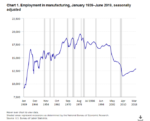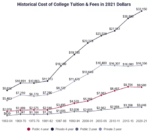National Conservatives are a growing movement on the political right. They are largely united by their belief in the failings of liberalism, in protectionist trade policy, a halt to mass migration, and a more Christianized nation. The attendees of this year’s conference, hosted by the Edmund Burke Foundation, focused on many topics: free trade, their desire to decouple from China, weaponization of government, bureaucracy in government, and even the building of parallel institutions. But one topic, one that should be vitally important to anyone wishing to preserve a nation, was absent. That, being monetary policy.In my time listening to many panels, and many a plenary speaker, the Federal Reserve and monetary policy was brought up once: by Senator Rick Scott (R-FL) who made allusions to
Read More »2024-07-20
































